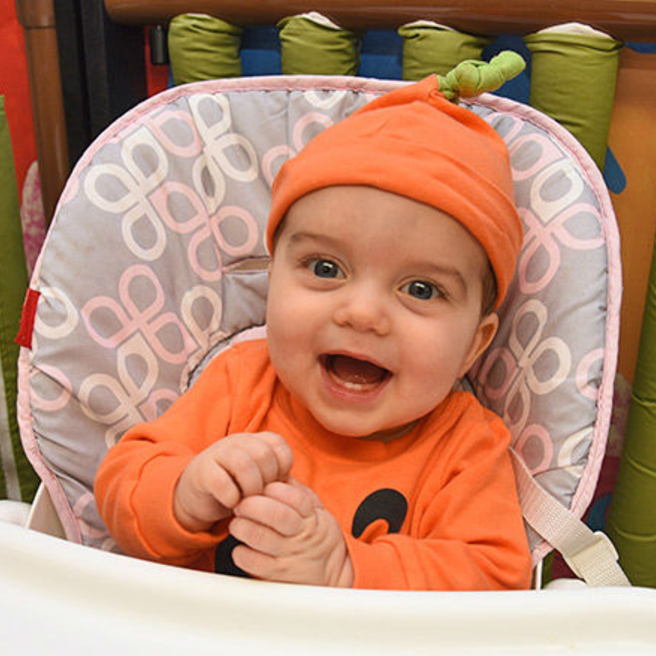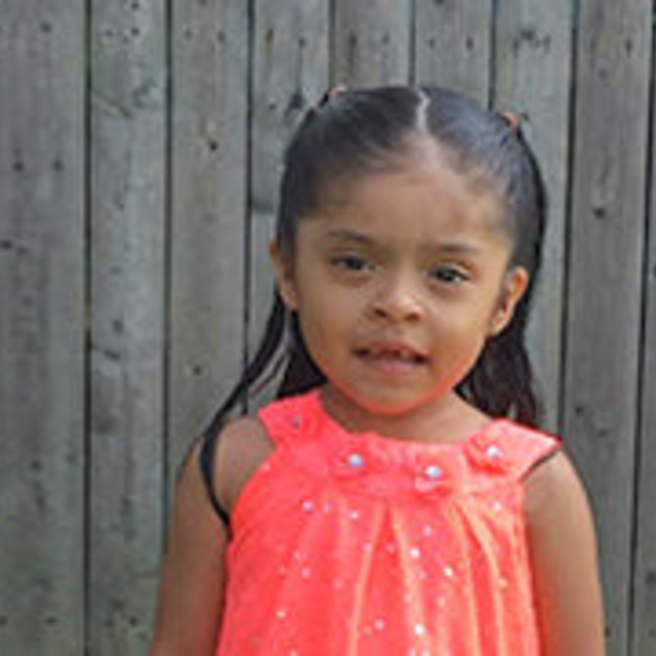What is congenital adrenal hyperplasia?
Congenital adrenal hyperplasia (CAH) is an inherited disorder of the adrenal glands that can affect both boys and girls.
The adrenal glands are located above the kidneys and produce three types of hormones:
- Cortisol, which regulates energy, blood pressure and blood sugar and helps us recover from a sudden illness
- Aldosterone, which governs the amount of salt and water in the body
- Androgens, a group of hormones which control the development of male characteristics
People with CAH cannot properly make cortisol and in some cases, are unable to produce aldosterone. They also produce too much of some androgens, such as testosterone and 17-hydroxyprogesterone.
These hormone imbalances can lead to serious illness, atypical genitalia, early puberty, growth concerns and other problems.
Types of congenital adrenal hyperplasia
In children with CAH, the adrenal glands lack certain enzymes needed to process cortisol and aldosterone. In close to 95 percent of cases, the missing enzyme is called 21-hydroxylase. CAH caused by this missing enzyme is called 21-hydroxylase deficiency.
There are two forms of congenital adrenal hyperplasia caused by 21-hydroxylase deficiency.
- Classical CAH: This is the most severe form of the disease and is less common. In people with classical CAH, the body fails to produce any cortisol, which is needed to regulate blood pressure, blood sugar, and help your body respond to illness or injury. Many children with classical CAH are also unable to secrete aldosterone or able to maintain an adequate amount of salt in their bodies, a situation that can lead to severe dehydration and even death if left untreated.
- Nonclassical CAH: This is the most common form of CAH and is mild in presentation. The body makes enough cortisol, but too much of certain androgens, like testosterone and 17-hydroxyprogesterone. Aldosterone secretion is normal in people with nonclassical CAH.
Signs and symptoms
Classical CAH
Children with classical CAH may develop an “adrenal crisis” which produces symptoms including:
- Vomiting
- Severe dehydration
- Low blood pressure
- Life-threatening shock
In classical CAH, the body also overproduces androgens, which can cause:
- Newborn girls may have atypical genitalia
- Older children to have early puberty, rapid growth, short adult height and difficulties with fertility
Nonclassical CAH
Children with nonclassical CAH may have:
- Early puberty
- Oily skin
- Acne
- Rapid growth during adolescence
- Short adult height
- Irregular periods (in women)
- Fertility problems
Cause
Congenital adrenal hyperplasia is a genetic disorder. In children with CAH, the gene (21-hydroxylase) that makes the enzyme needed to produce cortisol and aldosterone is not working properly. In order for a child to be born with CAH, both parents must be carriers of the mutated gene and pass it on to their baby.
CAH caused by 21-hydroxylasse deficiency can affect both boys and girls equally. One in 10,000 to 18,000 children are born with classical CAH, while the nonclassical form is much more common.
Testing and diagnosis
All infants born in the United States are screened for congenital adrenal hyperplasia through a blood test.
If your child is diagnosed with CAH, his physician may order additional blood tests, as well as other tests, including ultrasounds or X-rays of the abdomen and pelvis, to view the adrenal glands and the structure of your child’s internal genitalia.
Finally, the diagnosis can be confirmed with genetic analysis.
Treatment
In the Congenital Adrenal Hyperplasia Program at CHOP, our team will work with your family to develop an individualized treatment plan to manage your child’s disease.
Steroid replacement therapy
CAH requires lifelong treatment with cortisol. Your child will typically begin taking a synthetic cortisol or glucocorticoid (such as hydrocortisone, prednisone or dexamethasone) as a pill given by mouth every day. This pill replaces the cortisol your child cannot produce and also decreases the levels of androgens in the blood stream.
If your child is unable to make aldosterone, her doctor may also prescribe an aldosterone replacement, which is also given as a pill once or twice a day.
When a child with CAH gets sick, is injured or needs surgery, she will need high doses of cortisol, called “stress doses.”
Surgery
Some infant girls may require surgery of atypical external genitalia. In this situation, your child will be evaluated by our dedicated urology team with extensive experience in surgical management of children with CAH.
After an examination from our genitourinary surgeon, the team will meet with your family to counsel you on the different options available, discuss what surgery can do for your child, explain the risks and benefits of the procedure, and develop a treatment plan to meet your child’s individual needs. If necessary, surgery is typically done around 6 months of age.
Additional therapies
Our program at CHOP offers patients and families various treatment options, including clinical trials, to address any potential complications of CAH, such as early puberty or growth disorders. Therapies with suppression of puberty or growth hormone are discussed with families in such cases. Adolescents and young adults are screened for fertility problems and referred for expert opinion and treatment according to their needs. Nutrition and psychology support is available at any point for families.
Our program also offers genetic counseling for affected families considering having a child through consultation with genetics. Pre-implantation genetic diagnosis is also available to interested families.
Ongoing monitoring
Treatment of CAH can be challenging. Excessive treatment with glucocorticoids can lead to stunted growth, excessive weight gain and other long-term problems such as osteoporosis. Overtreatment with either glucocorticoids or fludrocortisone can result in hypertension.
On the other hand, under treatment usually results in elevated androgen levels. As a result, children may experience early puberty and a short window for growth with short adult height. In adolescent girls, undertreating may cause irregular periods and skin problems such as acne and excessive, male-pattern hair growth (hirsutism). In adolescent boys, poor CAH control can cause growth of testicular masses that resemble adrenal tissue, called testicular adrenal rests (TART).
To mediate the risks of over and under treatment, our program monitors children and teens with CAH for all potential complications associated with the disorder, including:
- Slow or rapid of growth
- Advanced bone age leading to shorter adult height
- Early or delayed puberty
- Increased body weight, insulin resistance and increased risk for type II diabetes
- High blood pressure
- Irregular menstruation in young girls
- Increased acne and facial hair growth in young girls
- Testicular adrenal rests tumors (TART) and decreased sperm count in young men
- Genetic counseling for affected families considering having a child
- Osteoporosis
Follow-up care
Babies and children with classical CAH are seen frequently depending on age and response to treatment. Follow-up care continues throughout childhood as we track your child’s height, weight, bone age and sexual development.
Long-term care may also include appointments with nutritionists, psychologists and counselors through our Adrenal and Puberty Center. Having all of these specialists work together on one team helps us deliver the best-coordinated care for your child.
Once your child reaches adulthood, we work closely with adult endocrinologists and adult infertility and reproductive endocrinologists to help make a seamless transition from pediatric to adult care.
Outlook
With proper treatment, children with congenital adrenal hyperplasia can live normal lives and participate fully in school and other activities. Girls with CAH may also grow and develop normally, have regular menstrual cycles and have children.
Your Child’s Congenital Adrenal Hyperplasia Program Appointment
Find out what you can expect during your child's appointment with the Congenital Adrenal Hyperplasia Program at Children's Hospital of Philadelphia.
Resources to help
Congenital Adrenal Hyperplasia Resources
Congenital Adrenal Hyperplasia Program Resources
We have created resources to help you find answers to your CAH questions and feel confident with the care you are providing your child.
Reviewed by Maria G. Vogiatzi, MD


